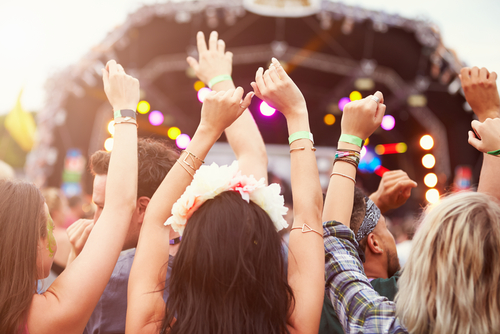
by Sally Rosa | Jun 16, 2015 | Addiction Articles, Sobriety For Women
One Question? It’s Really That Simple?
First, let me say that nothing written below is original. I didn’t come up with any of it. They’re my words, but the ideas all belong to twelve-step fellowships.

With that disclaimer out of the way – do you think you’re an alcoholic? Maybe you’re drinking too much on weekends. Maybe you’re drinking too much on weekdays. Maybe you’re drinking in the morning, at work, and until you pass out at night.
We all have different definitions of what alcoholism is. There’s the medical and scientific definition, the twelve-step definition, the treatment definition…the list goes on.
With all these conflicting definitions, how can anyone ever REALLY be sure they’re drinking alcoholically?
Well, dear readers, time spent in active alcoholism and in recovery have given me an answer! It’s a question to ask yourself. It’s pretty straightforward and commonsense. It shouldn’t be hard to answer either.
Can I Picture a Life Without Alcohol?
That’s it. From my time spent in the rooms of recovery (almost ten years), I’ve learned that asking yourself this simple question can speak volumes.
Can I picture a life without alcohol? If the answer is yes, then you’re probably not an alcoholic. If booze isn’t that important to you, if it’s merely something that enhances social situations or relieves a bit of stress, then you’re 99.9% not an alcoholic.
Can I picture a life without alcohol? If the answer is no, then you’re in trouble. If you absolutely cannot picture a life in which you don’t drink, something’s wrong. It doesn’t 100% mean you’re an alcoholic, but it does make things complicated.
But Fiona, you might be saying, I can’t picture a life without alcohol…but it’s only because I want to drink at my wedding!
Guess what? That’s alcoholic thinking. Again, it doesn’t mean you’re 100% an alcoholic, but that’s the type of thinking I displayed time and time again in active alcoholism.
See, my wedding isn’t guaranteed. I think I’ll get married one day, but it’s in the future and I can’t predict the future. So, if I can’t picture getting married without drinking, well, things are already looking bad. That means I can’t picture a future date, which may or may not happen, without alcohol!
Sounds a bit alcoholic to me!
Not Convinced?
Still not convinced that this simple question can help determine if you suffer from alcoholism or not? Fair enough. It’s a bold claim, right? Saying that a single question can accurately gauge a complex mental, emotional, spiritual, and physical disease is a bit of a stretch.
It’s not too much of a stretch though. Most good things in this world (religion, government, etc.) are based on simple ideas. Alcoholism is no different.
Religion is based on the idea that being connected to God and living a good life will payoff in eternity. Government is based on the idea that civilizations need a source of order and protection. Alcoholism is based on the idea that alcohol fills a void in the alcoholic.
If you can’t picture life without alcohol, well, you’re probably using it to fill a void inside your heart and soul. I say this as someone who struggled with that void for years. Guess what I eventually found out?
No amount of booze can make me feel whole. The only way I know to be “happily and usefully whole” is to be sober and be of service to others.
If you think you have a problem with alcohol, ask yourself that question. Ask yourself if you can picture a life without alcohol. Ask yourself honesty and answer honestly.
The answer may just surprise you.

by A Women in Sobriety | Feb 26, 2015 | Addiction Articles, Drug Addiction
Longer Hours = More Drinking
A new paper, published in the British Medical Journal, suggests there’s a link between working long hours and heavy drinking.

Sounds kind of obvious, right? The longer you work, the more tired and stressed you are. For many people, the solution to this stress is alcohol. Speaking from personal experience, alcohol and drugs were my answer to stress, and most everything else, for many years!
Well, now there’s science to back up this common sense truth. The longer and harder you work at a job that raises your stress level, the more prone you are to drink to excess. What’s more, these new findings show that gender, race, and economic status don’t factor in at all. Rather, it’s a one-to-one relationship between hours worked and alcohol intake.
Marianna Virtanen, the author of the paper and leader of the study, had the following to say about the link between overworking and overdrinking:
“…these findings suggests that some people may be prone to coping with excess working hours by habits that are unhealthy, in this case by using alcohol above the recommended limits” (Voice Chronicle).
So, what exactly does this study tell us? What are the new facts?
Work Hard & Play Hard
Scientists from the Finnish Institute of Occupational Health, located in beautiful Helsinki (hello, can I get a job there!), studied date from more than 330,000 people across fourteen different countries.
Their findings show that people who work for forty-eight or more hour per week are 11% more likely to drink heavily. That’s a rather large increase! Heavy drinking is defined as men having twenty-one or more drinks per week and women having fourteen or more drinks per week.
Backpacking off this new research, Cassandra Okechukwu, of the Harvard School of Public Health, estimated that there are two million people drinking heavily due to work. Again, that’s a lot of people driven to the bottle for no reason other than working long hours!
What this study doesn’t take into account are rates of alcoholism. Remember, heavy drinking and alcoholism are two different beasts altogether. So, if working long hours makes you 11% more likely to engage in heavy drinking – how much does it contribute to alcoholism?
That, my dear readers, is a conversation for another time. For now, let’s look at some of the dangers of heavy drinking.
Dangers of Heavy Drinking
Okay, this part is fairly obvious. Drinking to excess brings with it some significant dangers. This is true of heavy drinking, binge drinking, alcoholism, or mixing alcohol and other drugs.
Health problems common to heavy drinking include: heart disease, liver issues (including chronic Hepatitis), kidney problems, alcohol poisoning (overdose), increased risk of stroke, increased risk of cancer, drunk driving, unsafe sexual practices, and other negligent behavior.
Is There a Solution?
Here we reach the crux of the new research. Is there a solution to heavy drinking brought on by working forty-eight plus hours per week? Unfortunately, the research and resulting paper don’t suggest a solution. Rather, they state:
“Further research is needed to assess whether preventive interventions against risky alcohol use could benefit from information on working hours” (Voice Chronicle).

So, I’d like to suggest my own solutions. First, stop stressing out over work! This is much easier said than done, however it’s absolutely possible for everyone. If work is stressing you out, instead of turning to booze you can try meditation, journaling, talk therapy, other forms of therapy, or even talking with friends.
Second, if you find yourself drinking to excess, seek help! Don’t stay stuck in the cycle of drinking, feeling guilty, working, getting stressed, and drinking more! Trust me, it’s a hard cycle to break, but it’s 100% possible to come out the other side.
Think about it like this – if I can get sober, then anyone can get sober. If I can stop drinking to excess, then anyone can stop drinking to excess. This is true of people who drink due to work, stress, family issues, or anything else.
Finally, I’d like to suggest adopting a spiritual way of living. This is wonderful for living a life that’s productive, happy, and stress free. Once again, it’s hard to live based on spiritual principles, but the benefits far outweigh the challenges and work involved.

by A Women in Sobriety | Feb 24, 2015 | Addiction Articles, Recovery
Breaking the Stigma
It’s possible to break our anonymity in such a way that we don’t harm the various twelve-step fellowships we belong to. In fact, it’s possible to break our anonymity in such a way that not only are we not harming twelve-step fellowships, but we’re also helping the still sick and suffering.
Isn’t that what recovery is all about? Helping those who are struggling with active addiction? Helping those who can’t, come hell or high water, put down the bottle, the pipe, the syringe?
It was made clear to me very early on that my primary purpose in life was to help those struggling with drugs and alcohol. It doesn’t matter how busy I am. It doesn’t matter what else I have to do. It doesn’t matter if I don’t feel like it. If someone reaches out, I need to always be there to help.

So, with all that in mind, the question becomes how can I help people the best? How can I be of service to the still sick and suffering addict or alcoholic the best?
I’ve come to the conclusion that the best way to help those struggling with addiction, this entire planet’s worth of active addicts, is to break my anonymity. It’s to proclaim from the metaphorical rooftops that I’m a sober woman. It’s to shout at the top of my lungs that yes, I’ve recovered and yes, you can too.
Consider this my coming out, of sorts. I’m an addict in recovery. I’m a sober alcoholic. I’m a self-harmer who hasn’t seen light shine off a blade in years. I’m an eating disorder survivor. I’m depressed but still get out of bed each morning. I’m anxious but still talk to strangers. I’m mentally ill but still take my meds.
Of course, I’m not all of those things, but I might as well be. I’m many of them and the one’s that I’m not, well, I can identify with. The important part is the fact that I’m just like you. Yes, you. You reading this right now. I’m just like you.
I’ve felt the same despair and the same hope. I’ve celebrated and mourned the same things. I’ve been through the same impossible situations. It doesn’t matter if my impossible situations were different in the details than yours. We’re the same.
And, more importantly than anything else I’ve said so far, we can recover. At time it might not seem like it. At times it might seem like we’re doomed to die from our demons, or, even worse, to live with them. But I promise you that’s not the case. I promise you we can recover.
I’ll leave you with a quote that I can’t seem to stop thinking about. It’s from an essay I recently read about addiction and recovery.
The author, David Cohen, is the clinical director for one of the oldest and most respected rehabs in the country. He’s many years my senior. He been educated, I’m sure, at the country’s top schools. He’s a man and I’m a woman. Despite all of that, we’re the same.
We’re the same because we’ve both survived the same disease. A disease of our thinking and a disease of our actions. A disease of dishonesty. A disease that tries its hardest to appear to be anything but a disease. I’m talking, of course, about the disease of addiction.
So, enjoy David Cohen’s words. I certainly did. They triggered something in me that I can’t quite place my finger on. Read them and remember that we can all change!
“It is due time that the recovery community mobilizes to haul addiction out from the depths of dark basements, and into the light of the open and evolving nature of our society. I am proud to be in recovery. I am grateful everyday that I am free from the crippling grips of active addiction. Now is a time for all of us to spread the message of hope and healing to others who are still suffering. No longer should we glamorize addiction, nor should we oust the addicted individual from society, but rather we should join with the force of the current recovery movement to rejoice and celebrate the very human journeys of recovery that continue to emerge among us” (Huffington Post).
by Fiona Stockard | Jan 16, 2015 | Addiction Articles, Recovery
How Do You Tell a Child You’re Sober?
I don’t have children, so this is a hypothetical question for me. For many women (hell, for many men!) in recovery, it’s a very real question. How do you explain to your kids that mommy or daddy is a recovering alcoholic?
I’ve been in meetings where there are young children present. This rocks for two reasons. First, they’re kids and they’re so cute! Second, it shows a huge level of dedication to sobriety. Think about it – the child’s parents are so committed to staying sober that they’re willing to bring their child to a meeting. My metaphorical hat is off!

I always wonder, though, what the child thinks. Do they understand the seriousness of what’s going on? Can they pick up on the life or death struggle that alcoholics deal with? Do they think mommy and daddy’s friends are a bunch of tattooed weirdos?
So, with that in mind, I’ve gathered some of my thoughts about explaining addiction and recovery to children. They may be wonderful, awesome, one-of-a-kind thoughts. They may stink. I’m not sure! Like I said, I’m not a parent.
It’s my hope that the following can help someone struggling with the frightening question of how to best tell their kid that they’re a sober woman of grace and dignity!
Be Open & Honest From a Young Age
Children are smart! They pick up on then we give them credit for. If you bring your kids to meetings, or even if you used to drink around them, I’m sure they’ve figured out that something’s up.
So, lay it all on the table. Tell them that you used to drink or drug and no longer do. Don’t go into your war stories, or share details that are inappropriate, but be open and honest.
I’m speaking from personal experience. I have an aunt who’s sober. While being an aunt is different from being a parent, the same principles apply. When I started to get into trouble with drugs and booze, she sat me down and explained her past struggles.
I didn’t think much of it at the time, but looking back I appreciate her reaching out so much!
Have Your Sober Supports in Their Life
Did someone say free babysitting? I kid, I kid!
All jokes aside, introduce your sponsor to your children. After all, she’s the woman who taught you how to live. She’s the woman who gave you the chance to be a responsible parent. I’m sure your kids will adore her!
Sober supports, sponsor or otherwise, are the lifeblood of recovery. They’re the reason we’re sane members of society! At least, they are for me! Remember what I said about children picking up on things? I’m willing to bet they’ll pick up on your sober supports’ serenity and peace.
When the day comes that I have kids, I can’t think of a woman I want them to meet more than my sponsor!
Let Them Read the Big Book When They’re Old Enough
Although there are sections of the Big Book that aren’t suitable for children, most of it is a great lesson in how to be selfless, patient, giving, and responsible. What more could a child ask for? Well…probably some video games!
Really, though, Bill, Dr. Bob, and the first one hundred managed to write an amazing manual on how to live the type of life everyone wants. They managed to write about how to be happy, joyous, and free.
That seems like the kind of lesson to pass on to a child!
Include Them in Your Prayer & Meditation

This is, for me anyway, the most important part about telling a child you’re in recovery. Although sober supports are the lifeblood of sobriety, prayer and meditation are sobriety itself.
What better way to expose a kid to what recovery is really about then involving them in your prayer life? They’ll learn that, no matter what, they can turn to a Higher Power for help.
In today’s tumultuous world, that seems like a priceless gift.








